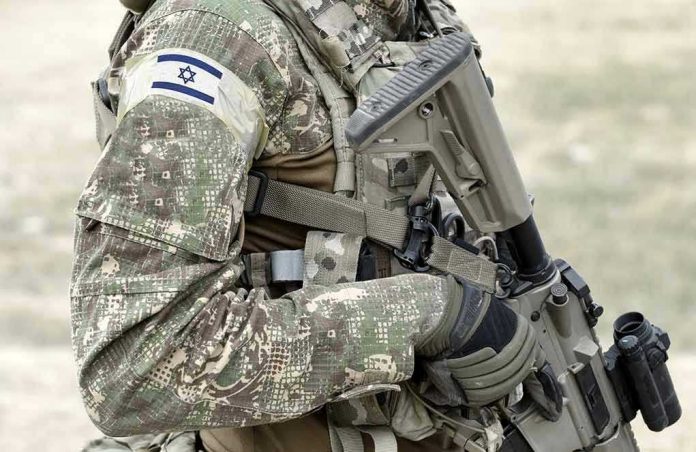
A vehicle crossing the Gaza cease-fire line ignites a rapid escalation between Israel and Hamas, threatening fragile peace.
Story Snapshot
- Israeli military fired on a vehicle that allegedly breached the Gaza cease-fire line.
- The incident follows a deadly Hamas missile attack on Israeli soldiers.
- Israel responded by closing all Gaza crossings and preparing for further military actions.
- Tensions rise, impacting regional stability and humanitarian conditions.
Escalation in the Gaza Strip
The Israeli military’s decision to fire upon a vehicle that reportedly crossed the Gaza cease-fire line has sparked a significant escalation in the region. This action came shortly after Hamas allegedly launched an anti-tank missile at Israeli military vehicles, resulting in the deaths of two soldiers. The Israeli government has since closed all Gaza crossings, signaling a severe response to what it views as a breach of the ceasefire agreement.
This incident underscores the precarious nature of ceasefire agreements in the region. The Gaza-Israel border is heavily militarized and monitored, making any breach of the ceasefire line a serious provocation. Israel’s response is indicative of its stance on maintaining border security and deterring future attacks. The closure of Gaza crossings further complicates the situation, affecting the movement of people and goods, and exacerbating humanitarian concerns.
Historical Tensions and Ceasefire Fragility
The Gaza Strip has long been a focal point of conflict between Israel and Hamas, with multiple cycles of violence and attempts at ceasefire. These agreements, often brokered by international mediators, are frequently short-lived due to mutual distrust and provocations. The recent events highlight the fragility of such agreements and the potential for rapid escalation. Past incidents, where ceasefire lines were crossed, have similarly led to renewed hostilities and closures, impacting the already dire humanitarian conditions in Gaza.
Israel’s decision to close all crossings in response to the alleged ceasefire breach underscores the volatility of the situation. The move not only aims to deter further attacks but also serves as a strategic measure to maintain control over the border. However, it also raises concerns about collective punishment and its impact on Palestinian civilians who rely on these crossings for access to goods and services.
Key Stakeholders and Power Dynamics
The primary stakeholders in this conflict include the Israeli government and military, Hamas, Palestinian civilians, and international mediators. Israel’s actions are driven by a need to assert control and deter future attacks, while Hamas seeks to challenge Israeli military presence. Palestinian civilians, caught in the crossfire, face restricted access to humanitarian aid and increased instability. International mediators, such as Egypt and the UN, often play a role in brokering ceasefires, aiming to prevent further escalation and maintain regional stability.
The power dynamics in this conflict are complex. Israel holds military superiority but faces international scrutiny, while Hamas controls Gaza but lacks the military strength to match Israel. Civilians remain the most affected, suffering the consequences of military actions and border closures. The situation also tests the diplomatic efforts of international mediators, who must navigate these fraught dynamics to prevent further violence.
Impact and Future Implications
The immediate impact of the latest escalation includes increased military activity, restricted movement, and heightened tensions. In the short term, this raises the risk of broader conflict and further destabilization. Long-term implications could involve the collapse of the ceasefire and worsening humanitarian conditions in Gaza. The closure of crossings disrupts trade and aid flows, exacerbating economic and social challenges.
Politically, the situation strains relations between Israel and international mediators, potentially leading to renewed diplomatic efforts or condemnation. The humanitarian sector faces significant operational challenges, as organizations struggle to deliver aid amidst closures and heightened security measures. The broader regional security environment becomes more volatile, with potential repercussions beyond the immediate conflict zone.
Sources:
The Jerusalem Post, “Israel shuts all Gaza crossings as Hamas violates ceasefire,” October 19, 2025.













